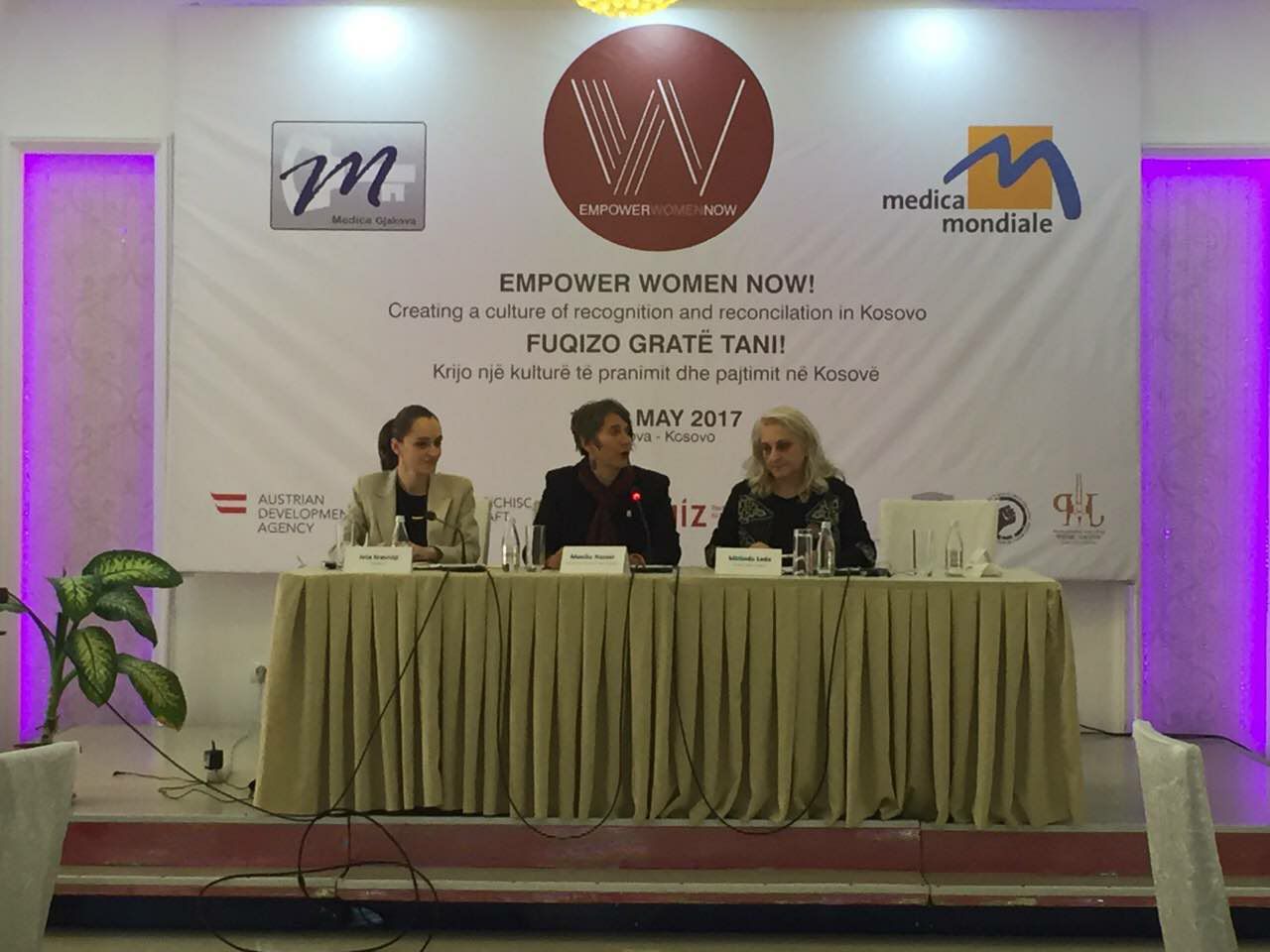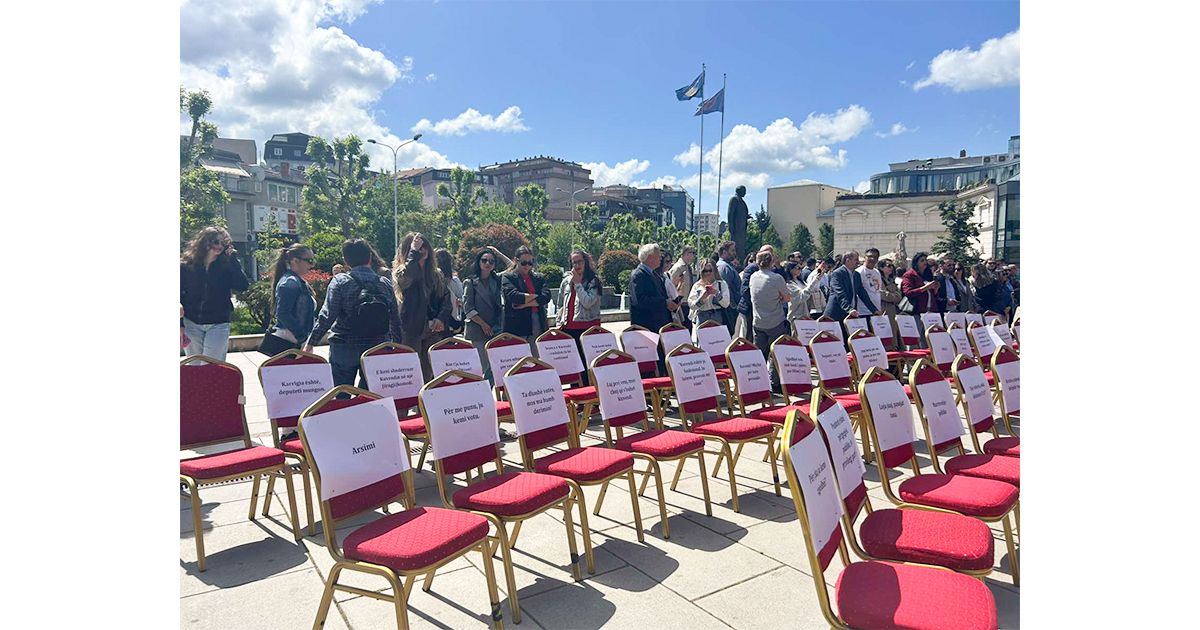On 11 and 12 May, Medica Gjakova and Medica Mondiale organized the international conference “Empower Women, Now” on the situation of survivors of sexual violence in Kosovo. The "Empower Women, Now" conference was held at the Hotel Pashtrik in Gjakova, under the patronage of the Embassy of Austria, and was attended by Mrs. Atifete Jahjaga, former President of the Republic of Kosovo, Arban Abrashi, Minister of Labor and Social Welfare, Mimoza Kusari Lila, Mayor of Gjakova, Representatives of Embassies and Foreign Offices in Kosovo, Representatives of Women’s Organizations from Kosovo, Bosnia and Herzegovina, Serbia and Croatia.
The objective of this conference was to raise awareness of the interrelated conflict of sexual violence and the situation of the survivors and the stigma associated with it. This two-day event focused on improving the law on the status of civilian victims of war and their families and in informing how women may have access to pensions and other benefits related to the law.
“We hope that by this conference in Gjakova we will push things forward. It is important to recognize their suffering, to promote reconciliation and rehabilitation at social levels and to contribute to individual empowerment, the collective healing process and the prevention of trauma among generations”, said Ms. Monica Hauser, founder and director of Medica Mondiale as well as the German partner organization of Medica Gjakova.
Whereas the former President of the Republic of Kosovo, Ms. Atifete Jahjaga, as the initiator of the support of survivors of sexual violence during the war in Kosovo, emphasized that “as a former Kosovo leader I would like to see more commitment by prioritizing issues of interest to women. Nevertheless, this should not discourage us, but empower us even more in our continuous work on the protection and support of women, especially survivors of sexual violence in Kosovo. So I think this conference is a good incentive for regional cooperation”.
In March 2014, the Kosovo Assembly approved the amendment of Law no. 04 / L-054 on the "Status of the Rights of Martyrs, Invalids, Veterans, Members of Kosova Liberation Army, Civilian Victims of War and their Families” to officially recognize and include the status of civilian victims of sexual violence during the war in Kosovo. Status grants to 20,000 women in Kosovo the right to monthly pensions and other benefits as prescribed by law. The National Council for the Survivors of Sexual Violence during the War in Kosovo, established in 2014 by former Kosovo President Atifete Jahjaga, developed the necessary legislation and necessary sub-legal acts and created the preconditions to ensure that survivors of sexual violence will have access to the benefits mentioned in the previous law.
Medica Gjakova is also a member of the Kosova Women’s Network.



